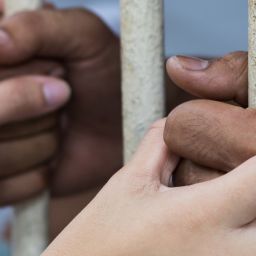In the vibrant heart of Baltimore, where life often moves at a bustling pace, the need for accessible and affordable mental health care couldn’t be more apparent. The city’s streets, lined with history and culture, also bear witness to the challenges many face in seeking help for mental illness. As Baltimoreans go about their daily routines, the demand for mental health services in Baltimore becomes increasingly evident. The search for mental health providers capable of offering relief in the face of mental illness is a journey often laden with obstacles, but it’s a journey that takes place right here in Baltimore, every single day.
Below, we will shed light on the critical factors that are compounding the challenges of seeking help for mental health in Baltimore. So, if you or any of your loved ones need this kind of help, you’ll be well informed about what to do and where to go.
The Growing Demand for Mental Health Services in Baltimore
Throughout the United States of America, a pressing issue continues to gain prominence: the increasing demand for mental health care. This growing need is something that touches the lives of everyday people, from all walks of life. According to studies, the most common mental health disorders in Baltimore are anxiety and depression, which affect many residents. Additionally, other mental health challenges like schizophrenia, bipolar disorder, and post-traumatic stress disorder (PTSD) are prevalent. These statistics are not just numbers; they represent our friends, family, and neighbors who grapple with these issues daily. As we delve into this topic, it becomes evident that understanding the prevalence of these mental health disorders is crucial. It highlights the urgency of addressing mental health concerns within Baltimore’s society.
In the following sections, we’ll explore the factors that people face when seeking help for these conditions and the limited availability of affordable mental health care options in Baltimore.
Barriers to Accessing Mental Health Care in Baltimore
In the quest for mental health care in Baltimore, an array of obstacles emerges, creating a labyrinth that many individuals must navigate. Among these barriers, stigma casts a long shadow, often shrouding mental health discussions in silence. The weight of societal judgment and misunderstanding can be a formidable deterrent, discouraging people from seeking the help they truly need. Lack of awareness further compounds the problem, as many residents may not even be aware of available mental health resources in their city.
However, what makes these barriers all the more distressing is the disproportionate impact they have on vulnerable populations within Baltimore. Low-income individuals, already burdened by financial constraints, often face even greater challenges accessing mental health services due to limited resources. Additionally, minorities confront unique obstacles, including cultural stigma and language barriers, which can further isolate them from the care they require. These barriers underscore the pressing need for comprehensive and equitable mental health support in Baltimore, ensuring that all residents, regardless of their background, can access the assistance they deserve.
The Financial Hurdle: Affordability Challenges
The financial hurdles associated with seeking mental health care often loom large. Affordability challenges can be daunting, deterring people from taking the crucial step of seeking help. Many find themselves grappling with the weight of medical bills, making mental health services seem like a luxury beyond reach. Compounding this issue is the stark reality of limited insurance coverage for mental health care, leaving individuals to shoulder the full financial burden. Furthermore, affordable treatment options can be sparse, making it challenging for those in need to find accessible care. These financial roadblocks underscore the pressing need for more comprehensive and affordable mental health support within Baltimore’s healthcare landscape.
Services Availability Challenges
The challenge of accessing mental health care services or Rehab Centers is more pronounced than ever Within Baltimore. The scarcity of mental health care providers and facilities stands out as a major roadblock. Across the city, residents face a critical shortage of professionals and clinics dedicated to addressing mental health needs. This shortage leaves many individuals without the vital support they require.
Moreover, geographical disparities within the city exacerbate the issue. Neighborhoods on the outskirts often find themselves distant from the limited available mental health services. This geographical divide means that residents in certain areas must travel significant distances to access care, adding an extra layer of complexity to an already challenging situation. These access disparities emphasize the urgent need for a more equitable distribution of mental health care resources across Baltimore’s diverse neighborhoods.
Lack of Community-Driven Initiatives
Despite the vibrant spirit of Baltimore’s communities, there’s a notable gap when it comes to local organizations and community efforts aimed at improving mental health care access. While the city thrives on community spirit, the resources dedicated to mental health remain insufficient. Many residents find themselves seeking help without the robust support systems that other cities may offer.
Additionally, there’s a noticeable absence of extensive support groups and grassroots movements addressing mental health issues within Baltimore. The dearth of such initiatives makes it harder for individuals to find the kind of peer and community support that can be so crucial in coping with mental health challenges. This underscores the need for a collective effort to foster community-driven initiatives and support networks that can better serve Baltimore’s diverse population.
Policy Struggles: Government Initiatives in Baltimore’s Mental Health Care Landscape
In Baltimore’s ongoing quest for better mental health care access, government initiatives and policies play a pivotal role. These efforts, while well-intentioned, often grapple with challenges of their own. Government agencies have taken steps to address the pressing need for improved mental health care, but there’s room for enhancement. What’s needed are more comprehensive policies that not only allocate resources but also bridge the gaps in mental health care accessibility. To truly make a difference, these initiatives require continued refinement and a deeper understanding of the unique needs and challenges that Baltimore faces. By addressing these policy struggles, we can create a more inclusive and effective mental health care landscape for all residents of the city.
Seeking Professional Help for Mental Health?
Ready to take the first step towards lasting recovery? Contact our trusted rehab center in Baltimore today, and let our compassionate team provide you or your loved one with the support and guidance needed for a brighter, healthier future. Your path to wellness begins here!
Conclusion
The challenges of accessing mental health services in Baltimore are multifaceted and deeply entrenched. From the growing demand for care to the barriers created by stigma, financial constraints, and limited resources, these obstacles are real and pervasive. However, by recognizing these challenges and working collectively to overcome them, Baltimore can pave the way for a more inclusive and effective mental health care landscape. We must continue to push for comprehensive policies, community-driven initiatives, and greater awareness to ensure that everyone, regardless of their background, has the opportunity to access the mental health support they deserve. In doing so, we can foster a healthier, more resilient Baltimore, where individuals and families can find the help and hope they need.
















